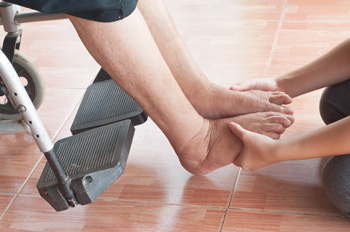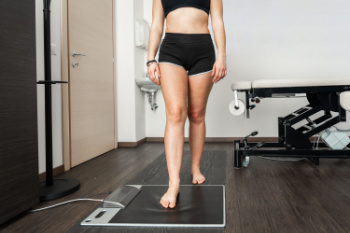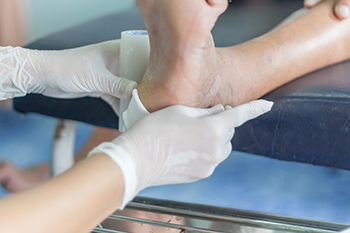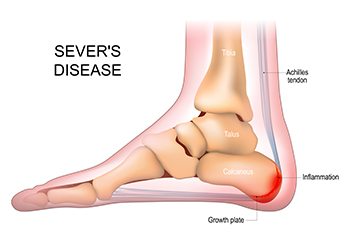Freehold (732) 294-9393
Freehold (732) 294-9393

As people age, maintaining foot health becomes vital, but yet often overlooked. Older adults commonly face several foot problems that can significantly impair their mobility and quality of life. These issues can include arthritis, which leads to joint pain and deformity, diabetes-related complications like neuropathy, which increases the risk of foot ulcers, and circulatory problems that slow healing and increase infection risks. Other common concerns are plantar fasciitis, bunions, hammertoes, and fungal infections, which become more prevalent with age due to changes in skin elasticity and foot structure. Preserving foot health is essential for seniors as it supports mobility, balance, and overall independence. Prevention plays a key role and involves proper foot hygiene, well-fitting, supportive footwear, and regular foot checks to identify problems early. Given the complexities of foot care in older age, if you are a senior, it is suggested that you schedule regular appointments with a podiatrist who can provide tailored advice and treatment, helping to maintain foot health and enhance quality of life.
If you need your feet checked, contact Dr. Henry Miller of New Jersey. Our doctor will attend to all of your foot and ankle needs and provide you with quality treatment.
Geriatrics and Podiatry
When people age, some common issues that may occur are bone density loss, dry skin, poor circulation, and rough brittle nails. These issues may also affect your foot health if the necessary steps are not taken to alleviate the problems.
It is important to take care of your feet because feet that are injured or diseased can affect your overall health. Having painful feet hinders your ability to do daily activities or may decrease your willingness to do the things that you need to do.
Visiting Your Geriatrician
As we age, health problems become more likely, so it is essential to visit your doctor for check-ups to ensure that you are doing the best you can to take care of your health. It is recommended to check your feet frequently for any possible cuts, bruises, swelling, corns or any other irregularities.
Taking Care of Elderly Feet
Cracked or dry feet can be treated by applying moisturizer often. It is also important not to wear old socks because the older the sock is, the higher the possibility there will be that there is bacteria there. Wear fresh socks and make sure they fit properly.
Proper foot health means that you can have a more active lifestyle and you will not be bogged down by pain. Foot health also leads to good circulation, which is paramount for overall health.
If you have any questions, please feel free to contact our office located in Freehold, NJ . We offer the newest diagnostic tools and technology to treat your foot and ankle needs.
 As people age, natural changes in foot biomechanics can significantly impact mobility and overall quality of life. The feet may lose padding and elasticity in the soft tissues, which can make walking uncomfortable due to the decreased cushioning. The arches of the feet may also flatten, a condition known as adult-acquired flatfoot. Flat feet can lead to changes in gait and increased strain on the ankles, knees, and hips. Additionally, conditions like arthritis may lead joints in the feet to stiffen and become less flexible, further limiting motion and causing pain during movement. These biomechanical changes can increase the risk of falls, reduce independence, and limit activities in older adults. Podiatrists play a key role in addressing these age-related changes by suggesting targeted treatment strategies. Included are prescribing orthotic devices to support weakened arches, recommending appropriate footwear to enhance stability and cushioning, and offering exercises to strengthen foot muscles and maintain joint flexibility. Regular check-ups with a podiatrist help manage these changes effectively, ensuring better mobility and reducing the risk of injury as one ages. If you are experiencing changes in your feet and mobility, it is suggested that you make an appointment with a podiatrist.
As people age, natural changes in foot biomechanics can significantly impact mobility and overall quality of life. The feet may lose padding and elasticity in the soft tissues, which can make walking uncomfortable due to the decreased cushioning. The arches of the feet may also flatten, a condition known as adult-acquired flatfoot. Flat feet can lead to changes in gait and increased strain on the ankles, knees, and hips. Additionally, conditions like arthritis may lead joints in the feet to stiffen and become less flexible, further limiting motion and causing pain during movement. These biomechanical changes can increase the risk of falls, reduce independence, and limit activities in older adults. Podiatrists play a key role in addressing these age-related changes by suggesting targeted treatment strategies. Included are prescribing orthotic devices to support weakened arches, recommending appropriate footwear to enhance stability and cushioning, and offering exercises to strengthen foot muscles and maintain joint flexibility. Regular check-ups with a podiatrist help manage these changes effectively, ensuring better mobility and reducing the risk of injury as one ages. If you are experiencing changes in your feet and mobility, it is suggested that you make an appointment with a podiatrist.
If you have any concerns about your feet, contact Dr. Henry Miller from New Jersey. Our doctor can provide the care you need to keep you pain-free and on your feet.
Biomechanics in Podiatry
Podiatric biomechanics is a particular sector of specialty podiatry with licensed practitioners who are trained to diagnose and treat conditions affecting the foot, ankle and lower leg. Biomechanics deals with the forces that act against the body, causing an interference with the biological structures. It focuses on the movement of the ankle, the foot and the forces that interact with them.
A History of Biomechanics
Modern technological improvements are based on past theories and therapeutic processes that provide a better understanding of podiatric concepts for biomechanics. Computers can provide accurate information about the forces and patterns of the feet and lower legs.
Understanding biomechanics of the feet can help improve and eliminate pain, stopping further stress to the foot.
If you have any questions please feel free to contact our office located in Freehold, NJ . We offer the newest diagnostic and treatment technologies for all your foot and ankle needs.

Foot ulcers are open wounds that develop on the feet, often affecting individuals with diabetes or impaired circulation. They typically occur due to a combination of factors, including neuropathy, which is nerve damage, poor blood flow, and pressure from footwear. Foot ulcers can vary in severity, from shallow sores to deep craters, and if left untreated, they can lead to serious complications such as infection and possibly amputation. The primary cause of foot ulcers is prolonged pressure or friction on the skin, which can result from wearing ill-fitting shoes, walking barefoot, or excessive rubbing. In diabetic individuals, high blood sugar levels can further exacerbate the risk by damaging nerves and blood vessels, impairing the body's ability to heal. Other contributing factors may include poor hygiene, smoking, obesity, and a history of foot problems. Recognizing the signs of a foot ulcer, such as redness, swelling, or drainage, is vital for prompt treatment and prevention of complications. If you have a foot wound, it is strongly suggested that you consult a podiatrist who can diagnose its severity, and offer treatment options that are right for you.
Wound care is an important part in dealing with diabetes. If you have diabetes and a foot wound or would like more information about wound care for diabetics, consult with Dr. Henry Miller from New Jersey. Our doctor will assess your condition and provide you with quality foot and ankle treatment.
What Is Wound Care?
Wound care is the practice of taking proper care of a wound. This can range from the smallest to the largest of wounds. While everyone can benefit from proper wound care, it is much more important for diabetics. Diabetics often suffer from poor blood circulation which causes wounds to heal much slower than they would in a non-diabetic.
What Is the Importance of Wound Care?
While it may not seem apparent with small ulcers on the foot, for diabetics, any size ulcer can become infected. Diabetics often also suffer from neuropathy, or nerve loss. This means they might not even feel when they have an ulcer on their foot. If the wound becomes severely infected, amputation may be necessary. Therefore, it is of the upmost importance to properly care for any and all foot wounds.
How to Care for Wounds
The best way to care for foot wounds is to prevent them. For diabetics, this means daily inspections of the feet for any signs of abnormalities or ulcers. It is also recommended to see a podiatrist several times a year for a foot inspection. If you do have an ulcer, run the wound under water to clear dirt from the wound; then apply antibiotic ointment to the wound and cover with a bandage. Bandages should be changed daily and keeping pressure off the wound is smart. It is advised to see a podiatrist, who can keep an eye on it.
If you have any questions, please feel free to contact our office located in Freehold, NJ . We offer the newest diagnostic and treatment technologies for all your foot care needs.
 Sever's disease, also known as calcaneal apophysitis, is a common cause of heel pain in growing children and adolescents, especially in those who play sports. This condition occurs when the growth plate in the heel becomes inflamed, often due to repetitive stress from activities like running and jumping. This, combined with the pressure of rapid bone growth during puberty, can create painful heels. The pain may worsen during or after physical activity and include tenderness to the touch. It may also lead to limping, especially after waking up or more intense physical activities. Treatment typically involves rest and various exercises that stretch and strengthen the leg muscles and tendons. Footwear with proper cushioning and support is also suggested to help alleviate symptoms. With appropriate management, symptoms usually resolve with the completion of the growth spurt, as the heel bone matures. If your child has painful heels and you suspect Sever’s disease, it is suggested that you make an appointment with a podiatrist for a diagnosis and management techniques.
Sever's disease, also known as calcaneal apophysitis, is a common cause of heel pain in growing children and adolescents, especially in those who play sports. This condition occurs when the growth plate in the heel becomes inflamed, often due to repetitive stress from activities like running and jumping. This, combined with the pressure of rapid bone growth during puberty, can create painful heels. The pain may worsen during or after physical activity and include tenderness to the touch. It may also lead to limping, especially after waking up or more intense physical activities. Treatment typically involves rest and various exercises that stretch and strengthen the leg muscles and tendons. Footwear with proper cushioning and support is also suggested to help alleviate symptoms. With appropriate management, symptoms usually resolve with the completion of the growth spurt, as the heel bone matures. If your child has painful heels and you suspect Sever’s disease, it is suggested that you make an appointment with a podiatrist for a diagnosis and management techniques.
Sever's disease often occurs in children and teens. If your child is experiencing foot or ankle pain, see Dr. Henry Miller from New Jersey. Our doctor can treat your child’s foot and ankle needs.
Sever’s Disease
Sever’s disease is also known as calcaneal apophysitis, which is a medical condition that causes heel pain I none or both feet. The disease is known to affect children between the ages of 8 and 14.
Sever’s disease occurs when part of the child’s heel known as the growth plate (calcaneal epiphysis) is attached to the Achilles tendon. This area can suffer injury when the muscles and tendons of the growing foot do not keep pace with bone growth. Therefore, the constant pain which one experiences at the back of the heel will make the child unable to put any weight on the heel. The child is then forced to walk on their toes.
Symptoms
Acute pain – Pain associated with Sever’s disease is usually felt in the heel when the child engages in physical activity such as walking, jumping and or running.
Highly active – Children who are very active are among the most susceptible in experiencing Sever’s disease, because of the stress and tension placed on their feet.
If you have any questions, please feel free to contact our office located in Freehold, NJ . We offer the newest diagnostic and treatment technologies for all your foot and ankle injuries.